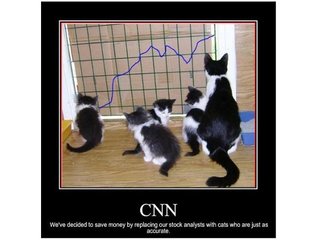Trump rescinds Biden executive order on artificial intelligence
The EO set AI safety and security standards and called for a report on AI's impact on labor
Read more...
Groupon has been receiving a lot of flack for its ill-preforming stock and continued bad PR for hurting small business that use the service to improve foot-traffic.
The company CEO, Andrew Mason spoke Monday at the Digital-Life-Design Conference in Munich Monday and had to field some tough questions about the company's post-IPO viability. Mason stated that as of this month, Groupon has 150 million subscribers and it continues to "change the way people shop locally, giving more buying power for consumers and enhancing transactions and inventory management for merchants."
Despite the glowing subscriber figures, the stock market doesn't seem to care. Groupon stock (NASDAQ: GRPN) traded Monday morning at $21.
After a bold entrance into the stock market in November, in which the stock surged 30% to close at $26 per share, Groupon became the biggest Internet IPO since Google, as measured by the amount of money it raised - $700 million vs. Google's $1.7 billion. But shares have continually declined since.
Mason stated that a lot of the pressure came from the media and investors that went from overly-excited to hyper-critical as the company announced that it woud go public. “We’re not a perfect company … the criticism was unfounded,” Mason said at the Conference.
Groupon has experienced extreme growth over the last few years -- from two million users in 2009 to 51 million users in 2010 and a staff that has swollen from 3,000 employees in 2010 to more than 10,000 now -- and a staggering 70% of which are employed outside the U.S.
Mason even expressed that the company and its business model is often misunderstood and thus is held to unrealistic standards. He even stated that it "doesn’t matter that you don’t understand," as journalists fielded questions about the company's struggling stock.
While Groupon was the first to take the daily deal email system and create a repeatable and profitable model, it has also suffered from more niche sites popping in the same space.
Despite some of the challenges that company has had to weather through, Mason pointed out the great returns that early Groupon investors experienced, including Eric Lefkofsky and Bradley Keywell, who sold a chunk of their shares for nearly $1 billion. While it was controversial at the time, many also pointed out that it is the nature of certain investors to poise for the ultimate return rather than do exactly what their subjects would like.
Groupon has also faced over the last several months over the amount of money it hemorrhages each year—most of which goes to subscriber acquisition. In 2010, Groupon made $312.9 million in revenue, but spent $284.3 million on marketing. All told, the company suffered a staggering net loss of $389.6 million last year. And it’s on track to lose even more this year: the company has already posted a net loss of $203.9 million for the first six months of 2011.
Still just three years old, Groupon catapulted so rapidly from a single deal-a-day site to multiple offerings in thousands of cities per day and a holdhold name.
So, while there is a greater amount of competition in the field, Mason believes that his company is fairing better than the failed attempts by big groups such as Yelp, OpenTable and Facebook.
"We combine operational excellence with a human component, which is a big part of our business," Mason stated. "We consider ourselves to be our biggest competitor. It won’t be a ninja move from one of our rivals that will kill us."
The EO set AI safety and security standards and called for a report on AI's impact on labor
Read more...The agency also published draft guidance on the use of AI in drug development
Read more...The biggest focus areas for AI investing are healthcare and biotech
Read more...



